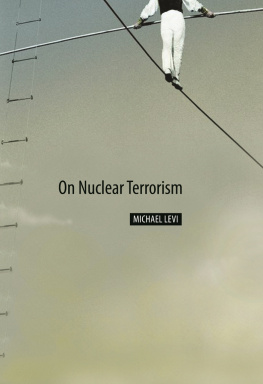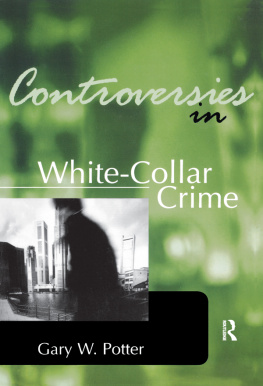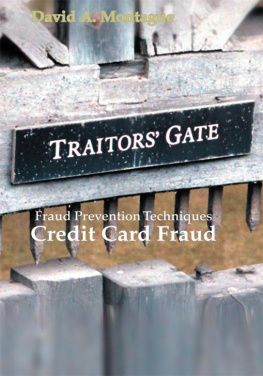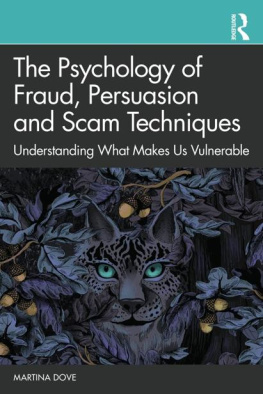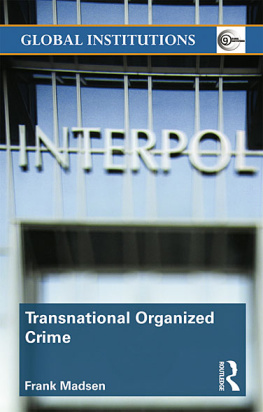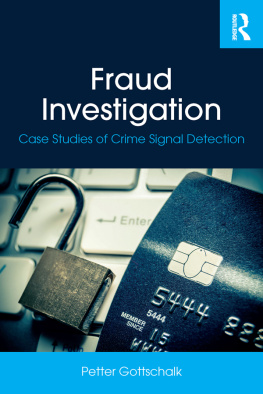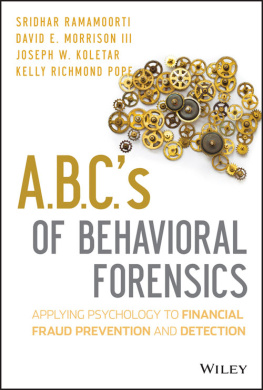Routledge Revivals
Regulating Fraud
First published in 1987, this book discusses white-collar or commercial crime which has grown to be a major issue in our society today. Looking at research from North America and Britain, the book explores the way fraudsters are treated. It draws on various disciplines including Economics, Law, Politics, and Sociology in order to show the frequency and impact of different types of fraud. In this book, Dr. Levi introduces the reader to the key areas of debate: What pressures influence the law on fraud? How do state agencies, self-regulatory bodies, or other professionals police fraud? To what extent is money-laundering and international organized crime breaking down the distinction between policing of the underworld and the upperworld? Dr. Levi concludes with the analysis of national and international policy trends in relation to fraud.
This book will be of interests to students of criminology, politics, and the sociology of law as well as to practicing lawyers and other professionals in the business sector.
Regulating Fraud
White-Collar Crime and the Criminal Process
Michael Levi
First published in 1987
by Tavistock Publications Ltd
This edition first published in 2013 by Routledge
2 Park Square, Milton Park, Abingdon, Oxon, OX14 4RN
Simultaneously published in the USA and Canada
by Routledge
711 Third Avenue, New York, NY 10017
Routledge is an imprint of the Taylor & Francis Group, an informa business
1987 Michael Levi
All rights reserved. No part of this book may be reprinted or reproduced or utilised in any form or by any electronic, mechanical, or other means, now known or hereafter invented, including photocopying and recording, or in any information storage or retrieval system, without permission in writing from the publishers.
Publishers Note
The publisher has gone to great lengths to ensure the quality of this reprint but points out that some imperfections in the original copies may be apparent.
Disclaimer
The publisher has made every effort to trace copyright holders and welcomes correspondence from those they have been unable to contact.
A Library of Congress record exists under ISBN: 87009994
ISBN 13: 978-0-415-82650-1 (hbk)
ISBN 13: 978-0-203-52933-1 (ebk)
ISBN 13: 978-0-415-82651-8 (pbk)
MICHAEL LEVI
REGULATING
FRAUD
White-collar crime and the criminal process
First published in 1987 by
Tavistock Publications Ltd
11 New Fetter Lane, London EC4P 4EE
Published in the USA by
Tavistock Publications
in association with Methuen, Inc.
29 West 35th Street, New York, NY 10001
1987 Michael Levi
Printed at the University Press, Cambridge
All rights reserved. No part of this book may be reprinted or reproduced or utilized in any form or by any electronic, mechanical or other means, now known or hereafter invented, including photocopying and recording, or in any information storage or retrieval system, without permission in writing from the publishers.
British Library Cataloguing in Publication Data
Levi, Michael
Regulating fraud: white collar crime and the criminal process.
1. White collar crimes
I. Title
364.168 HV6635
ISBN 0-422-61160-3
Library of Congress Cataloging in Publication Data
Levi, Michael.
Regulating fraud.
Bibliography: p.
Includes indexes.
1. White collar crimesGreat Britain. 2. FraudGreat Britain. 3. Criminal justice, Administration ofGreat Britain. 4. White collar crimesUnited States. 5. FraudUnited States. 6. Criminal justice, Administration ofUnited States. I. Title.
K5215.L48 1987 345.410268 87-9994
ISBN 0-422-61160-3 344.105268
Many people have given a helping hand in the lengthy preparation of this book. Among the multitude of academic colleagues who have been pressed into reading chapters in draft, often at short notice in what sadly turned out to be wildly over-optimistic deadlines, I am particularly grateful to David Sugarman for his critique of my original introduction. This spurred me on to produce the much fuller account of the legislative process that is now and to Robert Reiner for his comments on the draft manuscript. The other distinguished commentators suggested little in the way of revision, so I will maintain their anonymity: this should protect them from any public embarrassment though not private blame, for I am not one of those who hypocritically accept full responsibility for the deficiencies of others if and when any critical reviews come out!
As for the research that went into the making of the book, I thank the Commonwealth Secretariat and Law Ministers for commissioning my research into fraud trials (and prosecution departments around the world for supplying the data); the Home Office Research and Planning Unit, accountants Arthur Young, and the Police Foundation for funding and sponsoring the survey of The Incidence, Reporting, and Prevention of Commercial Fraud; the Home Office Statistics Department and Fraud Squads in England and Wales, most particularly the Metropolitan and City of London Company Fraud Department, for supplying me with what must have seemed to be absurdly irrelevant data and for making constructive comments about it; and Lloyds, The Stock Exchange, and the Securities and Investments Board, for some very helpful information about their enforcement procedures and sanctions.
On a personal as well as an institutional note, I am particularly grateful to Claire Austin of the Home Office and to James Morgan of Arthur Young for their time and efforts on the research study of The Incidence, Reporting, and Prevention of Commercial Fraud (1986); to Barry Rider of the Commonwealth Commercial Crime Unit and Jesus College, Cambridge, for his constant encouragement; to Commander Malcolm Campbell, Chief Superintendent Mike John, and Chief Inspector Phil Whittick (and other colleagues in the Metropolitan Police Fraud Squad); to Superintendent John Todd of the City of London Fraud Squad; to Vince Carratu, of Carratu International; to David Chaikin of the Australian Attorney-Generals Department; and to a number of other insiders in the public and private sector who prefer anonymity, for many stimulating conversations. Kevin Heal and Gloria Laycock of the Home Office Crime Prevention Unit, and Trevor Benn of the Home Office Statistics Department, also smoothed my path in this delicate area of research. However, none of the persons above bears any responsibility for the interpretation I have placed upon the data or upon the conversations that I have had with them: that is the authors burden alone.
The financial crisis in the higher education sector made it pointless to apply for my theoretical entitlement to sabbatical leave in order to complete this book. My thanks instead (and anyway), go to my wife and partner, Penny, and to our horse, Seven Up, for putting up patiently with my long absences at the word processor, on research trips away, and at those gastronomic rituals which professionals and businesspeople call working lunches and which we academics would prefer to label fieldwork, because it sounds like even less fun. (I suppose that wild mushrooms in raspberry vinegar would be the closest I ever came to a field on any of these projects! Those who lament the paucity of research on upperworld crime might use culinary incentives as a redistributive mechanism to move criminologists away from their traditional concentration on juvenile delinquency.) My students deserve some gratitude for not pointing out too often that my office looks as if burglars had wrecked it: actually, my hope was to deter burglars by inducing them to believe that someone had got there before them. Indeed, I think that I have now found the definitive solution to the problem of office burglary though, like many solutions to crime, it may not have much general appeal to people other than those doing the recommending.


